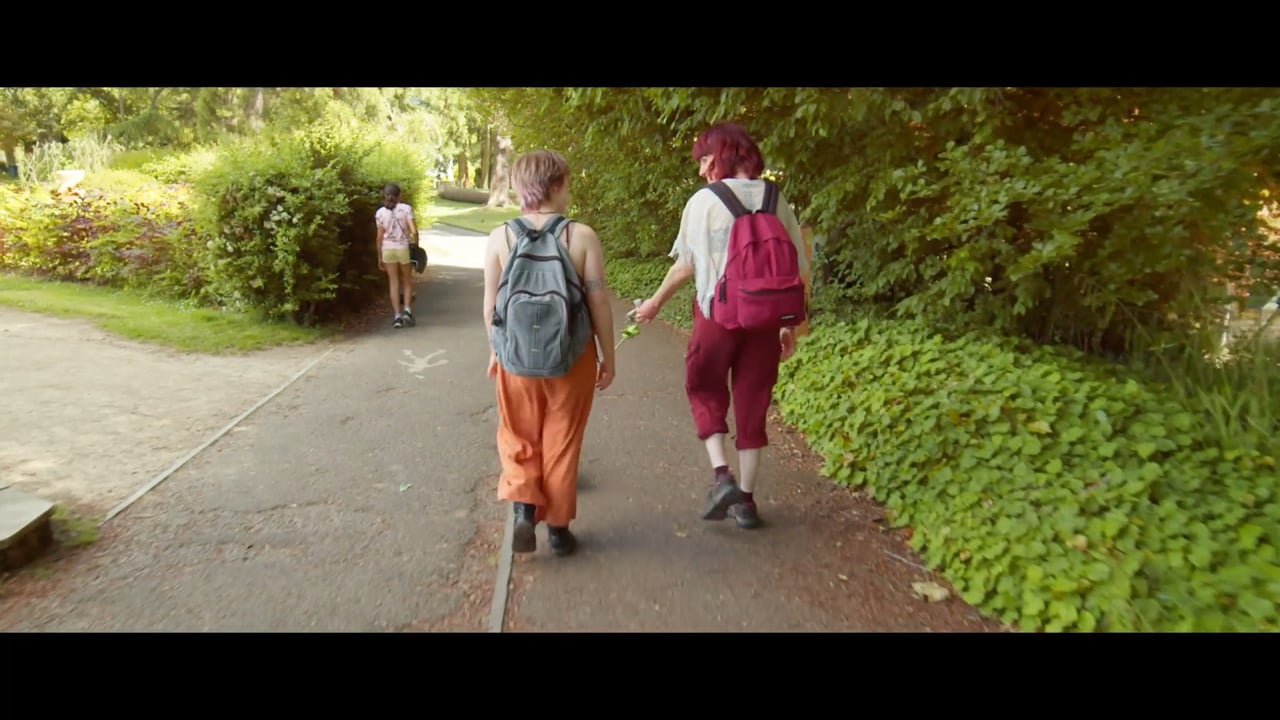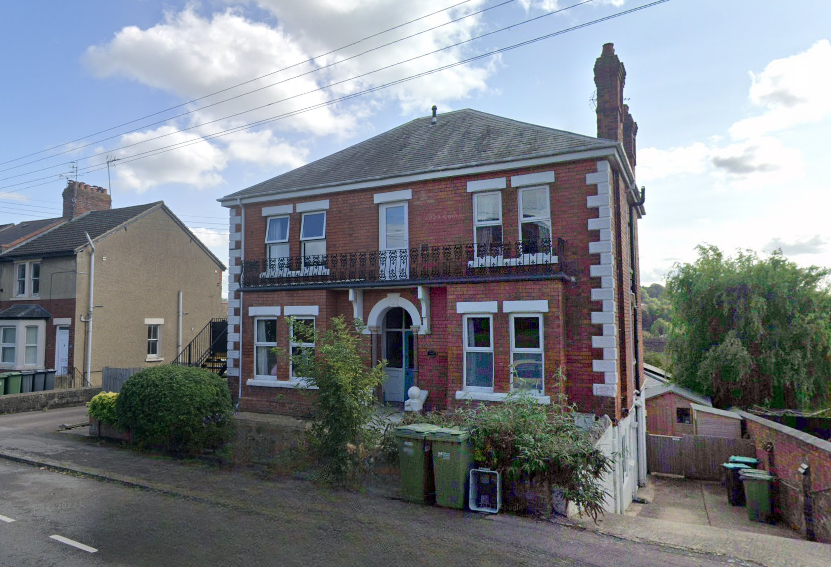About this location
Set in a charming Victorian town house, with period features, Priory Althea Park House is a residential home in Stroud, Gloucestershire. We offer 10 beds for young males and females with an eating disorder. Althea Park House provides a warm, homely and therapeutic atmosphere, that is conducive to distinguishing it from a hospital environment.
Located on the grounds of Althea Park, we also have The Anchor, a 3-bedded, semi-independent, step-down eating disorders service.
Services at a glance
Click here to enable this content
Services
Priory is the UK's largest independent provider of adult eating disorder services and we pride ourselves on offering quality, personalised treatment for every person we support.
Break down
- Althea Park House - 7-bedded residential home
Conditions treated
We are able to support young people with:
- Anorexia nervosa
- Bulimia nervosa
- Binge eating disorder (BED)
- Other specified feeding or eating disorders (OSFED)
We can also support young people who present with the following challenges alongside their primary eating disorder diagnosis:
- Autism
- A mild learning disability
- Physical health needs
- Depression
- Anxiety
We are able to support informal patients.
Treatment approaches
At Althea Park House, we offer an individualised, person-centred approach for all of our patients.
We offer a very warm and supportive environment which can provide an excellent platform for young people to practise developing independence. Our staff work with our residents to help them develop a sense of identity away from their eating disorder, outside the confines of a hospital. We feel that this is really important, especially as we are supporting young people who have missed out on so much.
In addition, our calm environment also lends itself to supporting neurodiverse people. This can be particularly helpful for patients who are stepping down from a potentially over-stimulating hospital environment.
We are able to support our residents with nursing and psychiatric support, 24 hours a day, 7 days a week. We also offer on-site blood testing and have a high patient to staff ratio (1:2).
Our assessment and treatment options are overseen by a full and diverse multidisciplinary team (MDT).
We offer:
- Positive behaviour support (PBS)
- Cognitive behavioural therapy (CBT)
- Cognitive analytic therapy (CAT)
- Dialectical behaviour therapy (DBT)
- Occupational therapy (OT)
- Mindfulness
- Family therapy
- Trauma informed therapy
- Equine therapy
- Maudsley anorexia nervosa treatment for adults (MANTRA)
- Eye movement desensitisation and reprocessing (EMDR)
We can offer all lengths of placements at Althea Park House, depending on individual needs.
Our team
- Registered manager
- Deputy manager
- Specialist psychiatric advisor
- Mental health nurse
- Children’s nurse
- Psychotherapist
- Family therapist
- Occupational therapist (OT)
- OT assistant
- Support workers
- Team leader
- Dietitian
- Cook
- Housekeeper
- Administrator
- Maintenance staff
- 4-day eating disorder training programme
- Personality disorder awareness training
- Self-harm, suicide and ligatures training
- Introduction to autism training
- Autism and communication training
- Autism and sensory experience training
- Autism and supporting families training
Therapeutic and community-based activities
We offer a range of therapeutic and community-based activities as part of a full treatment programme. We want to support people to become more confident and independent, preparing them to move through their treatment pathway towards community living.
Our therapeutic and community-based activities include:
- Gardening
- Therapeutic groups
- Getting active sessions
- Life experience sessions
- Arts group
- ‘Not just cooking’ sessions
- Trips to the local community
- Support to access paid or voluntary work in the community
- Olive, the dog, spends all weekdays in the home
We also offer independent living skills and independent eating skills, developed by our OT team. These pathways enable us to identify goals in these key areas, and work on skills/confidence.
Our facilities and environment
Our bedrooms
Exclusion profile
- People under the age of 17
- People over the age of 25
- History of arson
- History of sexual offending
- History of harmful alcohol or substance use
- History of proven physical or sexual assault toward others
- History of serious risk-taking behaviours within the previous 6 months
- History of life threatening self-injurious behaviours, through any method
- History of ingesting potentially harmful substances and/or swallowing objects, with the intention of causing harm
- Consideration will be given to episodes of being missing from care or treatment, and/or with police involvement
- People with a body mass index (BMI) below 15
- Consideration will be given to the recent use of nasogastric (NG)/percutaneous endoscopic gastrostomy (PEG) feeding or the use of supplements to sustain an adequate diet
Pathways
Priory’s network of high quality facilities enables us to offer joined-up care pathways with our dedicated residential services. We offer programmes which integrate healthcare treatment and therapy, which are tailored according to individual needs, in an appropriate setting. Our strength is that we can provide a seamless transition for the individual as they progress between higher and lower dependency services.
Althea Park House is part of our transitional living services for young people, offering individuals the best possible care in their recovery journey. We can support residents to move from the main house to The Anchor, when they are ready to do so.
Our transitional living services support people with complex mental health needs, risk taking behaviours, or eating disorders. In The Anchor, we provide a step-down service from Althea Park, for those ready to live more independently, but still with the support of our team.
Break down
- The Anchor – 3-bedded, semi-independent accommodation
Conditions treated
We are able to support young people with:
- Anorexia nervosa
- Bulimia nervosa
- Binge eating disorder (BED)
- Other specified feeding or eating disorders (OSFED)
We are also able to support young people with the following challenges alongside their primary eating disorder diagnosis:
- Severe and enduring mental health needs
- Physical disabilities
- Personality disorders
- Depression
- Anxiety
- Self-harm
Treatment approaches
At Althea Park House, we offer an individualised, person-centred approach for all of our patients.
We offer a very warm and supportive environment which can provide an excellent platform for young people to practise developing independence. Our staff work with our residents to help them develop a sense of identity away from their eating disorder, outside the confines of a hospital. We feel that this is really important, especially as we are supporting young people who have missed out on so much.
In addition, our calm environment also lends itself to supporting neurodiverse people. This can be particularly helpful for patients who are stepping down from a potentially over-stimulating hospital environment.
We are able to support our residents with nursing and psychiatric support, 24 hours a day, 7 days a week. We also offer on-site blood testing and have a high patient to staff ratio (1:2).
Our assessment and treatment options are overseen by a full and diverse MDT.
We offer:
- PBS
- CBT
- CAT
- OT
- Family therapy
- Trauma informed therapy
We can offer all lengths of placements, depending on individual needs.
Our team
- Registered manager
- Deputy manager
- Specialist psychiatric advisor
- Mental health nurse
- Children’s nurse
- Psychotherapist
- Family therapist
- OT
- OT assistant
- Support workers
- Team leader
- Dietitian
- Cook
- Housekeeper
- Administrator
- Maintenance staff
- 4-day eating disorder training programme
- Personality disorder awareness training
- Self-harm, suicide and ligatures training
- Introduction to autism training
- Autism and communication training
- Autism and sensory experience training
- Autism and supporting families training
Therapeutic and community-based activities
We offer a range of therapeutic and community-based activities as part of a full treatment programme. We want to support people to become more confident and independent, preparing them to move through their treatment pathway towards community living.
Our therapeutic and community-based activities include:
- Gardening
- Therapeutic groups
- Getting active sessions
- Life experience sessions
- Arts group
- ‘Not just cooking’ sessions
- Trips to the local community
- Support to access paid or voluntary work in the community
- Olive, the dog, spends all weekdays in the home
We also offer independent living skills and independent eating skills, developed by our OT team. These pathways enable us to identify goals in these key areas, and work on skills/confidence.
Our facilities and environment
Our bedrooms
All of our bedrooms are single-occupancy with an en-suite bathroom. People staying with us are encouraged to personalise their bedrooms while they are staying with us.
Exclusion profile
- People under the age of 17
- People over the age of 25
- History of arson
- History of sexual offending
- History of harmful alcohol or substance use
- History of proven physical or sexual assault toward others
- History of serious risk-taking behaviours within the previous 6 months
- History of life threatening self-injurious behaviours, through any method
- History of ingesting potentially harmful substances and/or swallowing objects, with the intention of causing harm
- Consideration will be given to episodes of being missing from care or treatment, and/or with police involvement
- People with a body mass index (BMI) below 15
- Consideration will be given to the recent use of nasogastric (NG)/percutaneous endoscopic gastrostomy (PEG) feeding or the use of supplements to sustain an adequate diet
Pathways
Priory’s network of high quality facilities enables us to offer joined-up care pathways with our dedicated residential services. We offer programmes which integrate healthcare treatment and therapy, which are tailored according to individual needs, in an appropriate setting. Our strength is that we can provide a seamless transition for the individual as they progress between higher and lower dependency services.
Althea Park House is part of our transitional living services for young people, offering individuals the best possible care in their recovery journey. We can support residents to move from the main house to The Anchor, when they are ready to do so.
A message from our site leader

When I first learned about Althea Park House, I really fell in love with the model of care and treatment it offers. It made me realise that I wanted to move from working with young people with an eating disorder in a hospital setting, into a home that focused on supporting them to rehabilitate. I really enjoy empowering the care team to actively work with our young people to go out into the local community and challenge themselves to experience life outside of the confines of their eating disorder. It’s been a privilege to see this ‘therapy in the living’ approach and the way it has been beneficial to a number of people who had previously felt confined in hospital
Althea Park House site leader.
Comments from our patients and their family and friends
I am grateful for the care that Althea Park House has given me since I have arrived here. With their help and support, I have found that my eating disorder symptoms have improved dramatically. Their support has been invaluable in managing my condition, and I feel like a completely different person compared to when I first arrived. The staff here have been incredibly understanding and patient, and I couldn't have asked for better care. I am now able to live my life to the fullest, thanks to the amazing care I received at this home
Information for family and friends
How do home visits work?
We support our residents to attend family events and visit home. We will work with them and their relatives to ensure possible risks are managed and that everyone is supported so the experience is a positive one. We own a couple of cars as part of the service, which means we can support with lifts home, where it is appropriate.
What is your visitation policy?
We have an open-door policy, and family and friends are encouraged to visit and participate in activities at our residential home. There are no specific visiting times, so you are free to visit your loved one whenever you can arrange this with them. Unfortunately, we cannot cater for visitors to stay overnight, but we can provide information on local/suitable accommodation for anyone who is travelling a distance.
Will I be involved and kept up to date with my loved one’s care and wellbeing?
Like much of what goes on at Althea Park House, this decision is led by the young person and what they feel is most beneficial to their recovery journey. Assuming they are happy with your involvement, we will put in place regular communication in a way that suits you, including being part of meetings where appropriate, either by person, via telephone or video link.
Will my loved one be able to have a phone or call me?
Althea Park is a home and everyone staying here has access to the phone on-site. However, the majority of the young people staying with us will have their own mobile phones and there are no restrictions placed around phone calls.
What type of things are families expected to provide, and what is provided by the home?
We provide all furnishings, bedding and food on-site and encourage our residents to individualise their own space. We also provide a ‘start-up pack’ to each patient, containing toiletries. If required, we can support the young people staying with us to use their money to purchase such items for themselves.
What are the bedrooms like?
All of our bedrooms are furnished, and residents are supported to personalise them to suit their needs and wishes. If a young person wants their room to be a certain colour prior to their arrival, our team will be happy to support this.
Are external doors kept locked?
No, we are a home, and our doors are unlocked. However, every person staying with us will be individually assessed for any risks.
What do service users eat and how do meal times work?
This is dependent on what stage the young people staying with us are in their recovery journey. For some, they may prepare some or all of their meals. However, typically everyone will have a meal plan collaboratively put together with our dietitian. We are able to accommodate most dietary needs, including veganism. We have a cook who prepares meals and snacks, working from meal plans put together by our dietitian. There is a choice available, within agreed guidelines.
How does laundry work?
We have a laundry room and area, so everyone can do their own washing and drying. We can offer support, if required.
Is there anything they can’t bring or have?
We would ask that valuables such as family heirlooms are not brought into our home, as we cannot guarantee their safety. However, outside of that, it is up to each person to decide what they wish to bring to the home.
Are pets allowed?
Pets are welcome on a case-by-case basis. However, the service does have a dog, Olive, who comes to Althea Park every week day.
How do activities work?
Activities are a core part of the work we do at Althea Park House. There are different ways in which they take place. The first of which is that we will support our young people to venture out into the local community, to find out what it might offer them. Secondly, the OT team facilitates a group programme, including sessions such as getting active, life experience, arts group and cooking. There are also ad-hoc trips out, dependent on what the group wants to do, as well as opportunities for individual activities.
Do service users and families have an input into the service user’s care plans?
Patients’ input into care plans is central to what we do. They are fundamentally driven by the goals identified by each young person at the assessment stage and further developed throughout their admission. Like much of what goes on at Althea Park House, the decision as to whether families input into the care plan is led by the young person and what they feel is most beneficial to their recovery journey. We will also work to capture the views of the care team from the placing authority.
What are the car parking facilities?
We offer a small, off-road car park on-site. You can also park for free on the road at the front of Althea Park House, 24 hours a day.
What is the smoking policy? Can service users buy cigarettes?
As Althea Park House is a home, our young people can choose to smoke outside the house. We don’t permit smoking inside the building, and this includes vapes.
How is treatment accessed and funded?
We don’t take referrals directly from individuals and families. Instead, the first step will be for you to reach out to the person’s GP so that they can be referred and funded through the correct NHS channel. Depending on the type of support needed, this could include local authority funding, NHS funding, joint funding between the local authority and NHS, or direct payments. Please note, referrals for NHS or local authority funded services must come from a referring organisation.
How to make a referral
Our customer service centre provides 24/7 support for NHS mental health enquiries and referrals. Our customer referral co-ordinators can support you from your first call right through to the enquiry conclusion, providing updates throughout the process. We offer 24/7 crisis referrals, fast access to bed availability and placements, and a single access point for end-to-end enquiry management.












